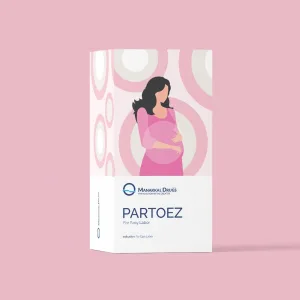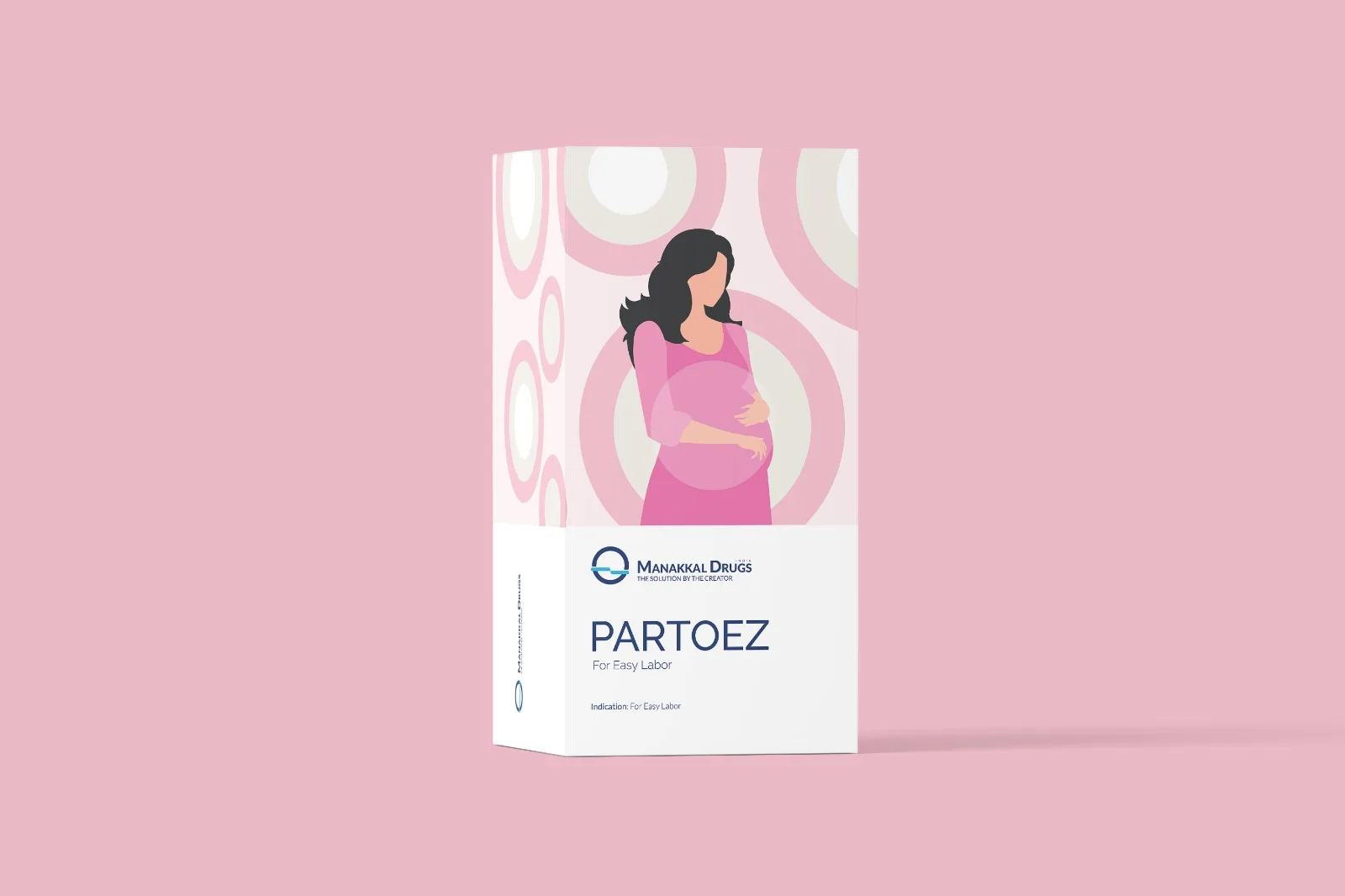 PARTOEZ
PARTOEZPARTOEZ
For easy labor
PARTOEZ is a specially formulated homeopathic remedy designed to support expectant mothers during labor. Crafted from a blend of natural ingredients, PARTOEZ aims to ease discomfort, promote relaxation, and facilitate a smoother labor process.
Key Benefits:
- Natural Relief: PARTOEZ harnesses the power of homeopathy, providing a gentle, drug-free option to help ease labor pains and anxiety.
- Supports Contractions: Formulated to encourage effective contractions, making labor progression more manageable.
- Promotes Relaxation: Helps calm the mind and body, allowing you to focus on the beautiful journey of bringing your baby into the world.
With PARTOEZ, you can approach labor with confidence, knowing that you have a trusted ally by your side. Embrace your birthing experience with the natural support of PARTOEZ and make your journey to motherhood a little easier.
₹3,000.00
Disease Details
The third trimester marks the final stage of pregnancy, commencing at 28 weeks and continuing until birth, typically around 39 to 40 weeks. This period is characterized by significant physical and emotional changes as the body prepares for labor and delivery. Understanding what to expect can help expectant parents navigate these final months more comfortably.
What to Expect in the Third Trimester
Physical Changes
As the uterus expands to accommodate the growing fetus—often reaching the size of a watermelon—many women experience a range of physical symptoms:
- Braxton Hicks Contractions: Often referred to as “false labor,” these contractions are irregular and less intense than true labor contractions. They can be relieved by changing positions or walking.
- Shortness of Breath: As the fetus grows, it can press against the diaphragm, making deep breaths more difficult. This sensation may improve as the fetus drops lower into the pelvis closer to delivery.
- Frequent Urination: Increased pressure on the bladder can lead to more frequent bathroom trips. Some women may also experience involuntary leakage when coughing or sneezing.
- Heartburn and Indigestion: The expanding uterus can press against the stomach, causing acids to rise and resulting in discomfort.
- Swelling: Fluid retention is common, particularly in the ankles and feet. Elevating the legs can help alleviate swelling.
- Emotional Changes: Expectant parents may experience a mix of excitement and anxiety about impending parenthood. It’s natural to feel overwhelmed or nervous as the due date approaches.
Prenatal Care
In the third trimester, prenatal visits become more frequent, typically occurring every two weeks until week 36, then weekly until delivery. These check-ups often include:
- Monitoring blood pressure and weight
- Checking fetal heart rate and position
- Measuring fundal height
- Conducting urine tests
- Discussing recommended vaccinations
Your healthcare provider may also perform cervical checks to monitor dilation and effacement, as well as conduct a Group B strep test around week 36.
Baby’s Development
During the third trimester, the fetus experiences rapid growth, gaining more than half of its total body weight in these final weeks. Major organs mature in preparation for life outside the womb, and by this stage, the fetus typically turns head-down in preparation for delivery.
Complications to Watch For
While most pregnancies progress normally, there are potential complications that can arise during the third trimester:
- Preeclampsia: Characterized by high blood pressure and protein in urine.
- Gestational Diabetes: Elevated blood sugar levels that can affect both mother and baby.
- Preterm Labor: Labor that begins before 37 weeks.
- Breech Position: When the fetus is positioned feet-first rather than head-down.
Regular prenatal visits are crucial for monitoring any signs of these complications.
Signs of Labor
Recognizing the onset of labor can be challenging, especially for first-time parents. Key signs include:
- Regular Contractions: Contractions that become increasingly frequent, intense, and painful.
- Water Breaking: This can occur as a sudden gush or a slow trickle of fluid.
- Bloody Show: Light bleeding as the cervix begins to dilate.
- Loss of Mucus Plug: This may not always signify immediate labor but indicates the body is preparing.
Taking Care of Yourself
Self-care is essential during the third trimester. Here are some tips:
- Stay Active: Gentle exercises like walking or swimming can be beneficial.
- Eat Well: Focus on a balanced diet rich in nutrients.
- Stay Hydrated: Drink plenty of water to help reduce swelling and discomfort.
- Seek Support: Don’t hesitate to ask family and friends for help as your due date approaches.
When to Contact Your Healthcare Provider
Open communication with your healthcare provider is vital. Contact them if you experience:
- Signs of preterm labor
- Vaginal bleeding
- Significant decrease in fetal movement
- Severe abdominal cramps
- Persistent nausea or vomiting
Contents
CAUSTICUM 10M
MAGNESIUM PHOSPHORICUM 6x
How to Use
Dosage
Start with the first dose from the Red Colored Sachet on the first day.
Continue the treatment with the Blue Colored Sachets three times in a day (morning, noon and night) until the completion of the course.
Treatment Duration
Continuous 60 days of medication without skipping any dose is mandatory for proper treatment of the condition and attaining desired results.
Taking PARTOEZ as directed can help support a smoother labor experience during the third trimester. Many users notice improvements in their comfort and relaxation levels shortly after starting the treatment. This early progress can enhance confidence and reduce anxiety about the labor process. For the best results, it’s important to take PARTOEZ consistently throughout your labor preparations, ideally starting in the weeks leading up to your due date. Doses has to be taken over a period of 60 days, with daily dosage of three times morning, noon and night.
Guidelines During Treatment:
To maximize the effectiveness of your treatment with PARTOEZ, please follow these recommendations:
- Take PARTOEZ Regularly: Follow the dosage instructions provided by your healthcare provider, ensuring you do not skip any doses. Regular intake will help you experience its full benefits.
- Avoid Other Homeopathic Remedies: Using other homeopathic treatments during this time may interfere with the effectiveness of PARTOEZ..

